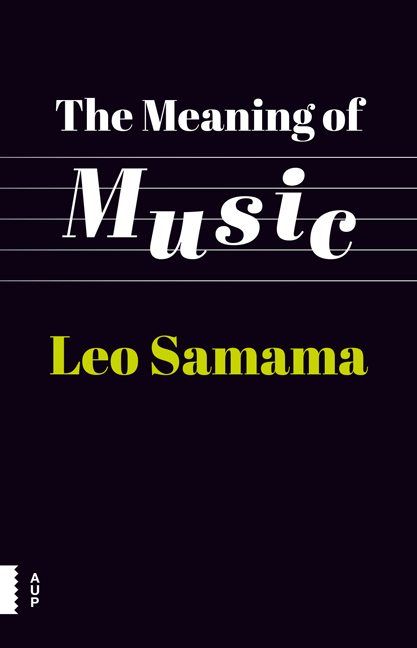15 - Hearing, Listening and Remembering
Published online by Cambridge University Press: 24 December 2020
Summary
In order to experience music we have to be able to hear it, since without this it does not exist as an acoustic phenomenon. Music first has to sound in order to be heard, but even then, that ‘being heard’ is only half the battle. We also have to listen actively; yes, even listen closely. In Toscanini and Debussy, the magic of reality (Toscanini en Debussy, magie der werkelijkheid), the Dutch composer Rudolf Escher stressed the need for careful listening: ‘The “wonders” of any music will never be “revealed” if this doesn’t happen in a natural way: sounding and listening. Good sounding and good listening. The second is instantly impossible when the first is not fulfilled.’ While good listening is a task for the audience, sounding good is in the first instance the responsibility of the composer, subsequently that of the performing musician, and finally that of various environmental factors.
That which the composer invents must be able to sound in order to be audible to the listener in a pure physical sense, otherwise communication of any kind is impossible. For example, a softly played piccolo amidst a couple of loud trumpets and trombones results in the piccolo not being heard. The experience of seeing a musician playing in an orchestra but not being able to hear the sound of their instrument is not uncommon. Is this the fault of the composer who has orchestrated his piece badly, that of the musicians themselves, or the conductor who hasn't managed to find the correct balance, the acoustics of the hall, or the listener who might be mildly deaf to higher frequencies, or is it a combination of these different factors? As long as the composer understands his trade then the most important condition is met, and under the right conditions the music can sound good.
With the composing and performance of music and the subsequent listening experience, the transmitter and receiver of music have to be coordinated optimally. No less important are the acoustics of the space, the quality of the instruments being played, any number of possible ambient sounds and even the temperature or humidity in a room, which has its effect on the sound of the instruments and the acoustics, and – when required – the nature of the amplification.
- Type
- Chapter
- Information
- Meaning of Music , pp. 131 - 134Publisher: Amsterdam University PressPrint publication year: 2016



